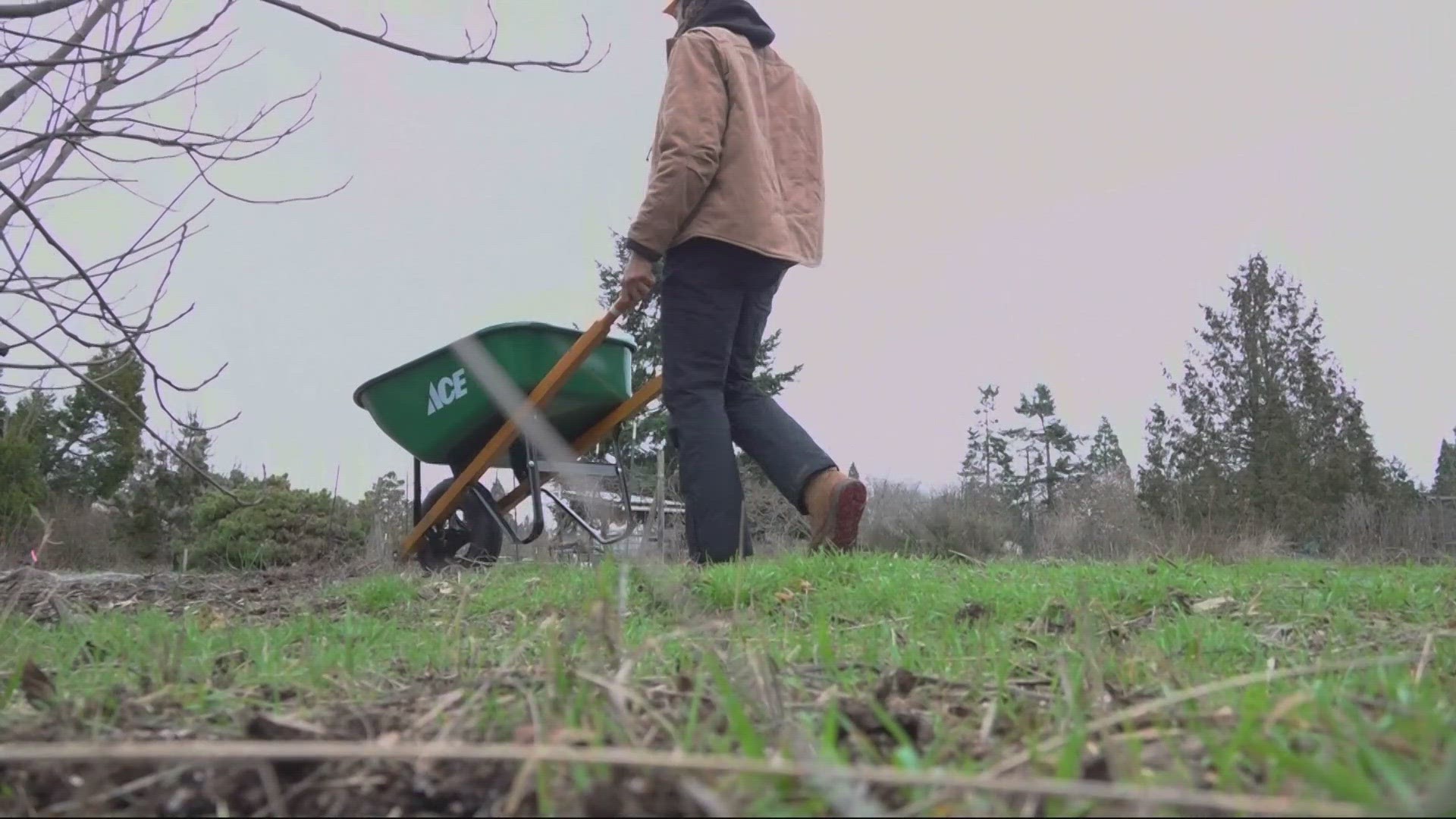PORTLAND, Ore. — Malcolm Hoover moved to Portland in late 2017. After completing a drug rehabilitation program, he was ready to start fresh, apprenticing under Black farmers and gardeners.
"It was always my goal to create a community-led institution to be able to give to Portland what Portland gave me, which was peace and healing," said Hoover, the co-founder of Black Futures Farm.
With the goal of creating a nonprofit already in mind, a co-worker told Malcolm about an open plot of land in southeast Portland.
Malcolm jumped on the idea, and in 2020, Black Futures Farm was born.
"Black Futures Farm is a Black-led farm, Black centered. We serve primarily the Black community, but we serve also this local community,” said Hoover. "We're located in Brentwood-Darlington."
Hoover comes from a family of farmers. He learned the often-overlooked history of African American agriculture.
"Those people came from West Africa, and they brought a variety of rice with them called South 'Carolina Gold,' and that was the original cash crop in America,” explained Hoover. “Africans were brought here to be rice farmers and then transitioned into other crops."
Hoover is pushing others to detach growing fresh food from the legacy of slavery.
"A plantation is like a concentration camp for Black people,” said Hoover. "It's not seen as a site of liberation for a lot of us because we know how our ancestors suffered there, so we're here to reclaim that, heal that and change that."
Daniel Grady, the lead farmer at Black Futures Farm, said the garden is place for people to find community while learning a new skill.
"It's like a family reunion,” said Grady. "It’s always a good time, even if you've never met someone before; there is always that internal connection because of people's past traumas.”
Once grown, all of the fresh fruit and vegetables are donated to pantries and nearby schools.
"We'll just do pop-ups here at the farm," Grady said. "We'll say, 'Bring a bag, fill up your bag; if you feel like you are taking too much, take more.”

